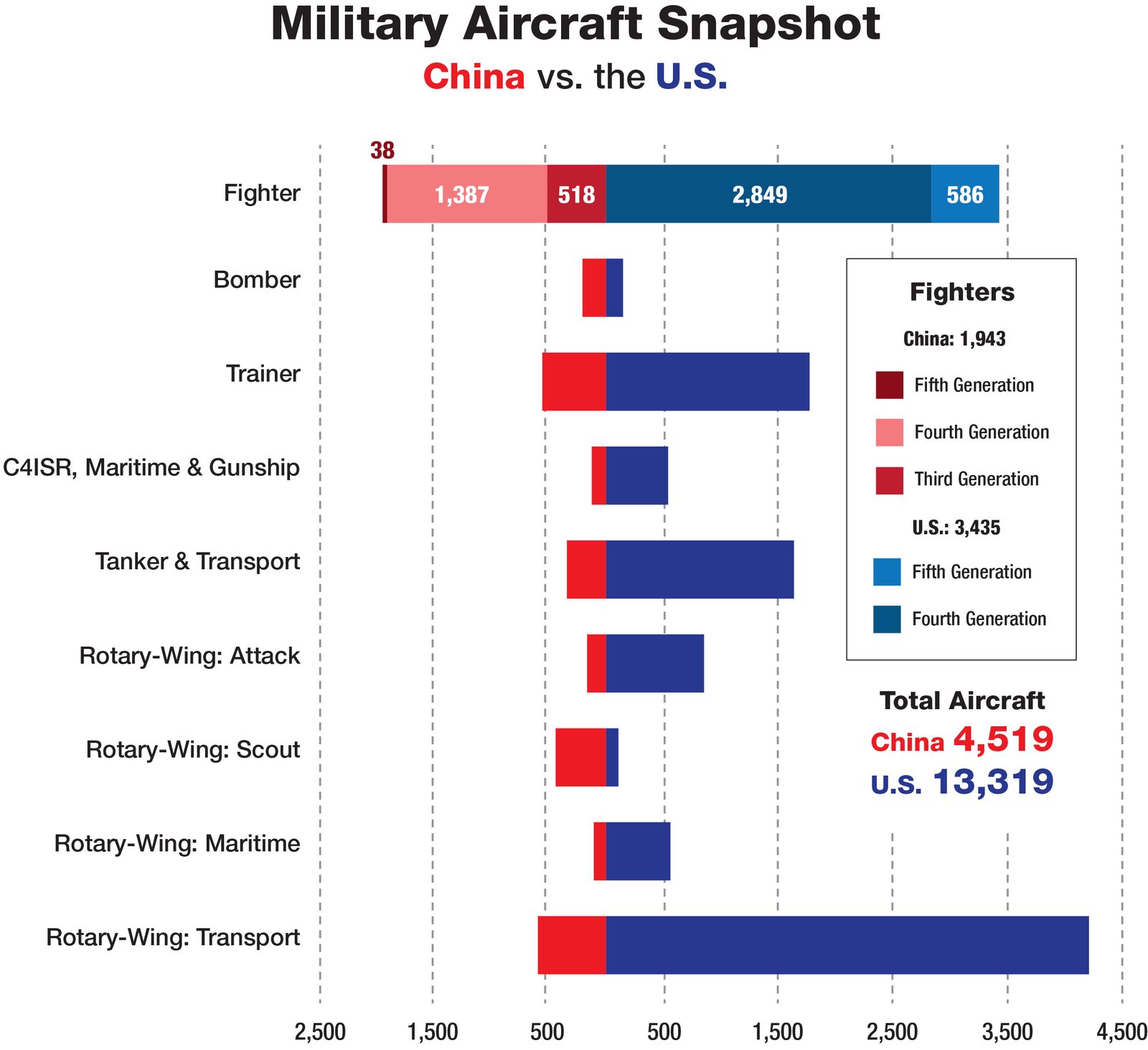March 4, 2021 | International, Aerospace
Former Air Force acquisition boss joins drone maker Volansi
Roper will help the Volansi grow its business in the defense market, the company said.
June 30, 2020 | International, Aerospace
What is the ratio of military aircraft between the U.S. and China?
Jen DiMascio, Aviation Week Executive Editor, Defense and Space, responds:
The U.S. military operates 13,319 aircraft—about three times as many manned aircraft as the Chinese military, which operates 4,519. But the ratio is not even across all types of aircraft, according to Aviation Week Intelligence Network (AWIN) data analysts Dan Urchick and Michael Tint.
When it comes to combat aircraft, the ratio is more narrow: The U.S. operates 3,435 aircraft while China operates 1,943. For now, the U.S. has a qualitative edge—with 586 fifth-generation combat aircraft to China's 38.
The U.S. possesses especially large advantages in rotary-wing aircraft (4.3:1); tankers and transports (4.8:1); and command, control, communications, computers, intelligence, surveillance and reconnaissance (C4ISR) platforms (4.1:1), according to AWIN data.

https://aviationweek.com/defense-space/aircraft-propulsion/what-ratio-us-chinese-military-aircraft

March 4, 2021 | International, Aerospace
Roper will help the Volansi grow its business in the defense market, the company said.

March 26, 2024 | International, Aerospace
The Army is rapidly pursuing launched effects to deliver surveillance, reconnaissance, targeting, network and lethal capabilities to a modern force.

September 4, 2024 | International, Aerospace
This week’s test involved two satellites, built by SpaceX, exchanging data via a laser-communication link.